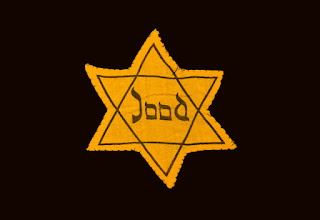 |
| Deposit Photos |
“If you’re good at a sport, they attach the medals to your shirts and then they shine in some museum. That which is earned by doing good deeds is attached to the soul, and shines elsewhere.” Gino Bartali, two-time winner of the Tour de France, recognized as Righteous among the Nations, 2013
In 1938, Gino Bartali won the Tour de France. In 1948, he won it again, setting a record for the number of years between wins of this prestigious race. In 1948, he also set the record for the number of consecutive mountain stages won.
But it was in the years between these two wins that he put his fame, and his bicycle, to their best use.
Gino was a devout Catholic, and active in the lay group, Catholic Action. A number of his closest friends were church leaders, including the archbishop of Florence, Cardinal Elia Dalla Costa.
In the fall of 1943, the archbishop asked Gino to meet him at his residence in Florence. As usual, Gino rode his bike. The archbishop told Gino of Jewish refugees flooding into Florence, needing food, shelter, and false identity papers. Would Gino work as one of this network’s messengers, carrying photographs to Assisi for the counterfeiting ring there to generate identity papers?
Gino was already a familiar sight on the local roads, both as a military bicycle messenger and for his training rides. He had a strong alibi for his trips. But if he was caught, his fame would not save him from a concentration camp or a firing squad. Nor would he be able to protect his wife and two-year-old son from retaliation.
Gino accepted the assignment.
 |
| Deposit Photos |
In the fall of 1943, the archbishop asked Gino to meet him at his residence in Florence. As usual, Gino rode his bike. The archbishop told Gino of Jewish refugees flooding into Florence, needing food, shelter, and false identity papers. Would Gino work as one of this network’s messengers, carrying photographs to Assisi for the counterfeiting ring there to generate identity papers?
Gino was already a familiar sight on the local roads, both as a military bicycle messenger and for his training rides. He had a strong alibi for his trips. But if he was caught, his fame would not save him from a concentration camp or a firing squad. Nor would he be able to protect his wife and two-year-old son from retaliation.
Gino accepted the assignment.
 |
| Deposit Photos |
The trip to Assisi was 110 miles along the most direct route. Gino made the trip many times, carrying photographs or papers rolled inside his bicycle frame. Sometimes, when word came that refugees were traveling on specific trains, he used his fame to distract German patrols and allow the Jews or other refugees a better chance to change trains. He hid a Jewish family in his basement.
Eventually, Gino was summoned to appear at Major Mario Carita’s headquarters—known by its nickname “House of Sorrow.” He was questioned by Carita over letters from the Vatican thanking Gino for his help. Gino claimed that the help amounted to food supplies.
Three days later the questioning continued, but one of Carita’s militiamen stepped forward to interrupt the proceeding. This man had been Gino’s military supervisor and had allowed Gino to use a bicycle in his military duties. He said, “If Barali says coffee, flour, and sugar, then it was coffee, flour and sugar. He doesn’t lie.”
Gino was released.
Only a few days later, the Allies took the city of Florence.
 |
| Righteous Among the Nations Garden Deposit Photos |
Truly, as he told his son, “Some medals hang on the soul, not on the jacket.”
Martha Hutchens is a transplanted southerner who lives in Los Alamos, NM where she is surrounded by history so unbelievable it can only be true. She won the 2019 Golden Heart for Romance with Religious and Spiritual Elements. A former analytical chemist and retired homeschool mom, Martha is frequently found working on her latest knitting project when she isn’t writing.
Martha’s current novella is set in southeast Missouri during World War II. It is free to her newsletter subscribers. You can subscribe to my newsletter at my website, www.marthahutchens.com
After saving for years, Dot Finley's brother finally paid a down payment for his own land—only to be drafted into World War II. Now it is up to her to ensure that he doesn't lose his dream while fighting for everyone else's. No one is likely to help a sharecropper's family.
Nate Armstrong has all the land he can manage, especially if he wants any time to spend with his four-year-old daughter. Still, he can't stand by and watch the Finley family lose their dream. Especially after he learns that the banker's nephew has arranged to have their loan called.
Necessity forces them to work together. Can love grow along with crops?



Thank you for posting today! I think this speaks to the ingenuity of people in finding a way to work for good. Thank God for creating us with a brain and the desire to help the afflicted and oppressed. I mean, really, hiding papers inside a bike frame!!??
ReplyDelete